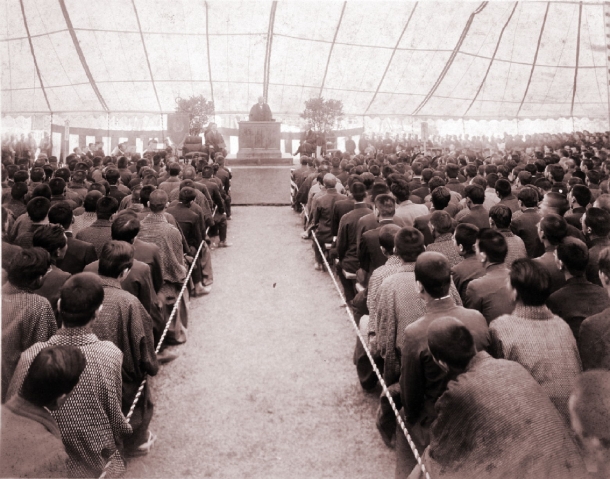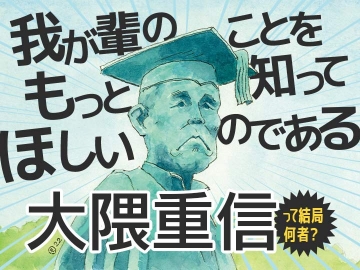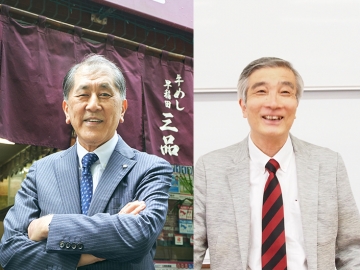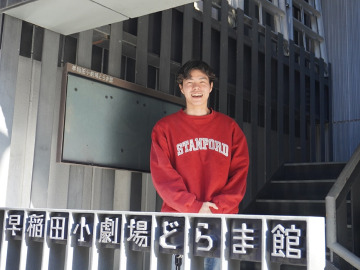Looking at the "Abbreviated Chronology of Shigenobu Okuma(大隈重信略年表)'' at the end of the "Collection of Speeches and Discourses(大隈重信演説談話集)'' edited by Waseda University (Iwanami Shoten, 2016), we find that "December 4, 1877 (Meiji 10) (Shigenobu Okuma) became Director-General of the Secretariat for the Prime Minister's Expenses for Conquest. Responsible for financial matters after the Seinan War,'' and the following year, "On May 16th, he became Director-General of the Land Tax Revision Secretariat. As Toshimichi Okubo's successor, he will promote the land tax reform project.'' In the past two years, Takamitsu Kido, Takamori Saigo, and Toshimichi Okubo have all retired from the historical stage one after another. Some historians consider this to be the end of the Meiji Restoration. There has been no civil war in Japan since the Seinan War until today.
When Tokyo Senmon Gakko opened in 1882 (Meiji 15), Japan was at peace in the sense that there was no war within the country. However, Japan then entered into foreign wars: the Sino-Japanese War (1894-95), the Russo-Japanese War (1904-05), and World War I (1914-18). On April 14, the year after World War I ended (Taisho 8), Okuma gave a "Opening Ceremony''. In it, Okuma told that with the promulgation of the University Ordinance, Tokyo Senmon Gakko would soon become Waseda University, and further added that "competition is the mother of culture,'' and that from then on, they would live in an era of peaceful competition, an era of international "intelligence,'' "competition" and "academic competition." Peace is an essential condition for "academic independence.'' The fact that Okuma aspired to the ideal of "world peace" and searched for ways to achieve it while taking into account the actual world situation is mentioned in six speeches included in "Four: Ideals-For World Peace,'' in the Part II "Talking about Politics/Talking about the World" of the "Collected Speeches and Discourses(演説談話集)," but I will not discuss that here.
In 1920 (Taisho 9), the year after this "admonition'', the establishment of Waseda University was approved, and two years later Okuma died at the age of 83 - although he had said that the human lifespan was 125 years. Therefore, Okuma is unaware of the tragedy of World War II (1939-45). Almost 80 years have passed since the end of World War II, and during this time Japan has enjoyed peace. Waseda University is also approaching its 150th anniversary in 2032.
When the memories of war fade away,
war again
Get closer to us.
It's fine if not. (Rin Ishigaki)

Address by Shigenobu Okuma at the opening ceremony in April 1920 (Waseda University History Museum collection)
Director of Waseda University Student Affairs Division Yoshihide Yanai
[Profile] Yoshiaki Yauchi. After serving as Professor at Kanda University of International Studies and Professor at Waseda University's School of Commerce, he became Professor Faculty of Commerce in 2002. His specialty is medieval philosophy centered around the 11th century philosopher Anselm of Canterbury, and research on interreligious dialogue in the Middle Ages. His translations include Anselm of Canterbury: A Portrait in a Landscape (R.W. Southern, Chisenshokan, 2015) and Anselm's Collected Works and Letters (Heibonsha, 2023).






![[Save version] Map of the four main campuses](https://www.waseda.jp/inst/weekly/assets/uploads/2025/09/17cb2975123fc5103172ef60bd98608d-610x458.jpg)

